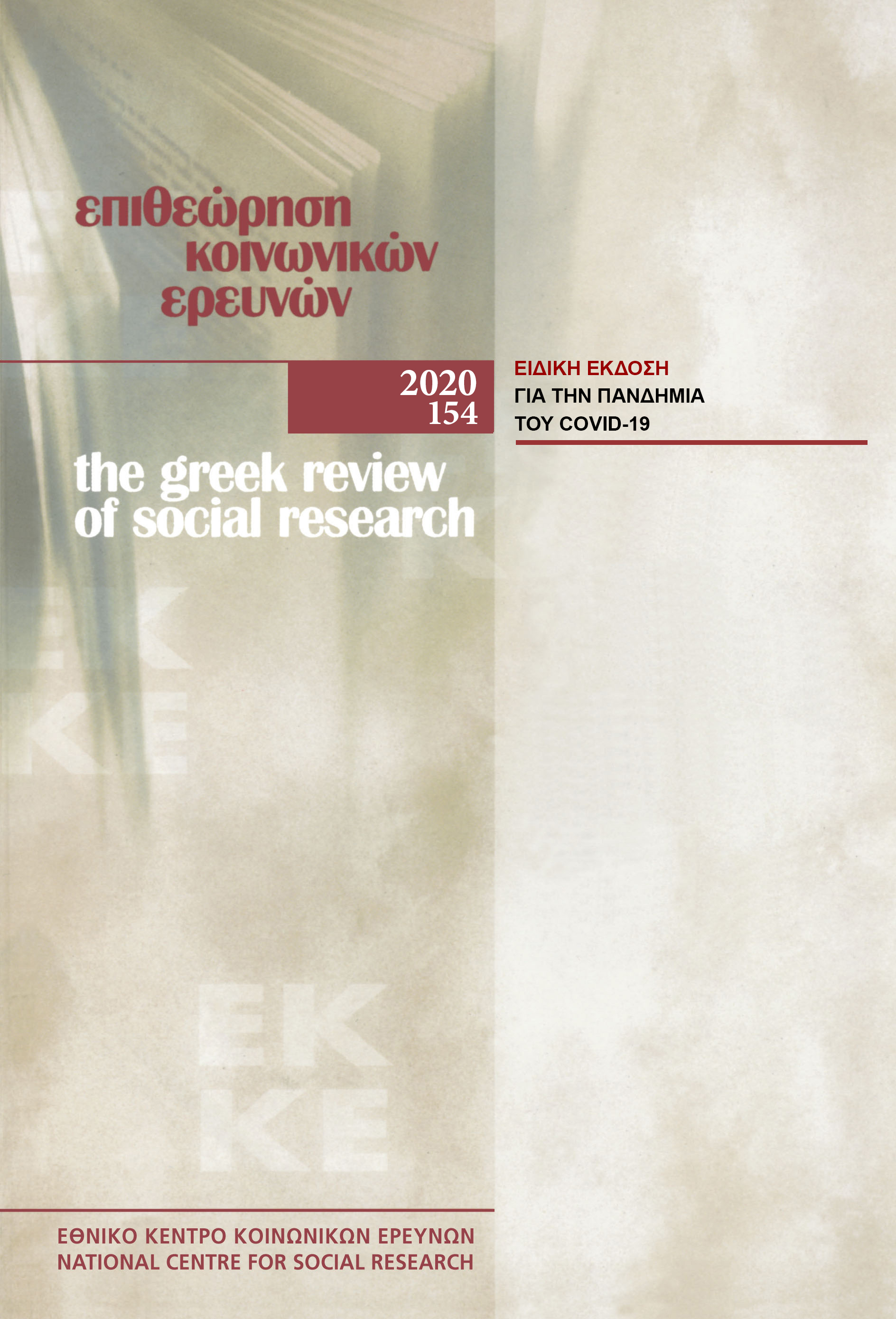Culture in «restriction». The cultural experience of the imaginary and the real space

Abstract
We are in the process of a global dramatic health crisis, affecting our lives, our livelihoods, the social and cultural tissue of society. Covid - 19 has created a state of emergency which, among other things, brings the entire cultural sector (mobile, immovable and intangible cultural heritage) into an unexpected state, imposing the suspension of almost all its processes and worldwide operating networks or in intra-social scale setting, at the same time, an ever-present, substantial reflection, regarding the degree of sustainability of modern cultural strategies and the relevance between its diffusion practices, human behavior and response in times of extreme (global) events.. Contributing to a broader interdisciplinary discussion, the purpose of this text is to describe the context of cultural reality (real space and imaginary) as it is experienced through the generality of the crisis experience in the field of cultural life.
Article Details
- How to Cite
-
Micheli, A. (2020). Culture in «restriction». The cultural experience of the imaginary and the real space. The Greek Review of Social Research, 154, 75–88. https://doi.org/10.12681/grsr.23230
- Section
- Articles

This work is licensed under a Creative Commons Attribution-NonCommercial 4.0 International License.
Authors who publish with this journal agree to the following terms:
- Authors retain copyright and grant the journal right of first publication with the work simultaneously licensed under a Creative Commons Attribution Non-Commercial License that allows others to share the work with an acknowledgement of the work's authorship and initial publication in this journal.
- Authors are able to enter into separate, additional contractual arrangements for the non-exclusive distribution of the journal's published version of the work (e.g. post it to an institutional repository or publish it in a book), with an acknowledgement of its initial publication in this journal.
- Authors are permitted and encouraged to post their work online (preferably in institutional repositories or on their website) prior to and during the submission process, as it can lead to productive exchanges, as well as earlier and greater citation of published work (See The Effect of Open Access).


